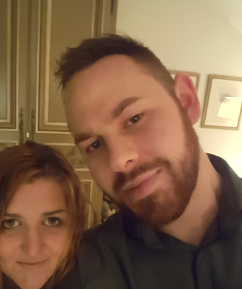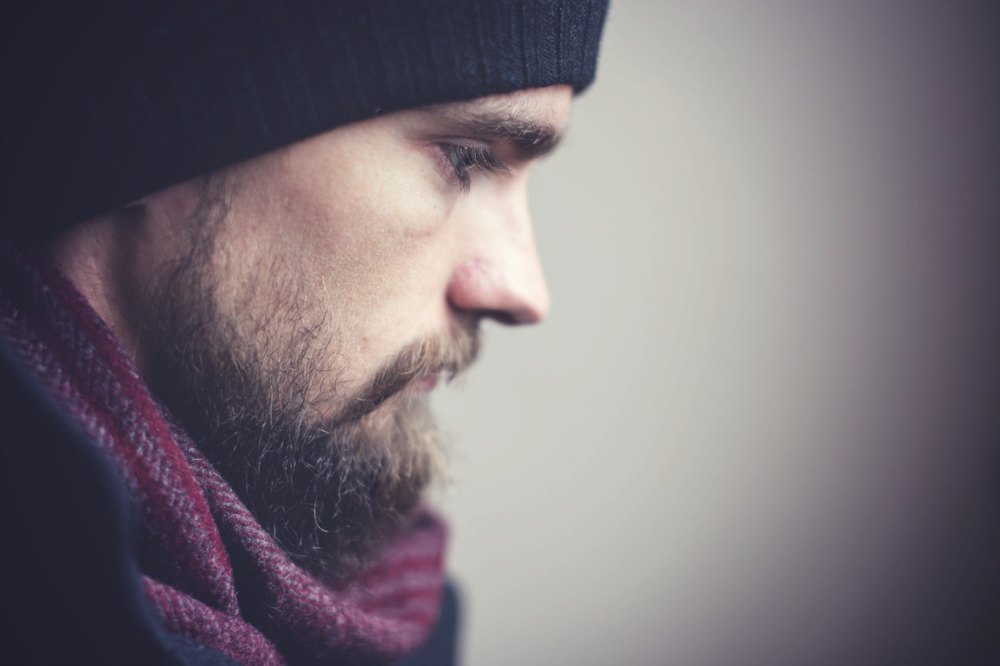I was always shy as a child, avoiding conversation and always feeling a little worried. I put these feelings down to my age, and thought that once I’d grown up a bit, the awkward feelings would be a thing of the past. As I transitioned from primary school and into secondary school, the feelings seemed to follow me.
I was thirteen around this time, and knowing that I’d be in a new school with new people made me feel a heightened sense of worry I’d never experienced before. I felt the same worry I felt when my mum dropped me off in the playground for the first day of primary school. It was that same stomach churning worry that I knew all too well.
Even though I continued to feel this worry, I remember still thinking that I’d eventually grow out of it. The problem was, it was only getting worse. Whilst my new friends seemed like they didn’t have a care in the world, there I was, trying to fit in, but still feeling as if something was not right. At this time I didn’t even know that anxiety was a word! And I certainly wouldn’t of been able to tell you what it meant. So I carried on through my school years, forcing a smile onto my face, and saying yes to things when really deep down I wanted to say no and go and lock myself in my bedroom.
The years flew by as they do, and eleven years had passed since I took my first step into primary school. Even after all that time, I still felt the same intense levels of anxiety as I was approaching college. For what ever reason, my anxiety seemed to peak around this time, and I had my first panic attack. It was as if all those years had built up to a critical mass that simply tipped me over the edge.
I’d packed my bag and made my way out of the house as I normally did, walking down the main road towards the train station. I hadn’t made it very before before it started. Every passing car made me feel more paranoid, the sun was bright and caused me to feel blinded. Like many days, I had struggled with whether I was actually going to go in that day. I wondered if I’d be in trouble for last week when I’d stayed at home for three days. I was going back and forth in my mind wondering what they’d say to me. It was at that point I considered quitting and just going back to the comfort of my bedroom.
Although very anxious, I was also always determined, and so I knew that I had to at least see the year out, and so I carried on in the warm heat. However for a reason that I still can’t explain, my mind started to race, as if there were two voices telling my conflicting things. I started to feel frantic, as if everything was crashing down around me. The brain fog that I had become accustomed to sank over my eyes, and that was all I needed. I stopped, turned, and scurried back towards home. There was no way I could walk into a class with everyone looking at me. Surely they would know I was some kind of imposter that never truly belonged there in the first place. It just all got too much. Some people say that your life flashes before your eyes before you die, however in that moment, every anxious situation in my life seemed to play in fast forward in my mind.
Amongst the panic, I remember thinking to myself that this was just who I was, and likely who I’d always be. After all, I couldn’t remember a time that I hadn’t felt this way. I’d never be confident, outgoing, and I’d never understand why I felt so confused. I opened and closed the door behind me, and in doing so felt a huge weight drop. Amongst the quiet of the hallway, I heard my mum call out to see if I’d forgotten something.
This would be the first time that I’d ever broken down in the blink of an eye. She rushed over to me and asked what was wrong. I didn’t know how to explain what was going on, however I was completely convinced I was losing my mind. Of course I knew what anxiety was by this age, but I never knew it could make you feel like you were going mad. So that’s exactly what I told her. Blubbering, I told her I thought I was going crazy. It felt like the last eleven years were like a balloon that had slowly been filling with air, but the pressure had now caused it to pop.
My experience with anxiety had always made me feel lonely, as if I was the only person in the world who was experiencing it. Looking back I think I felt that way because no-one was talking about it. No-one was talking about mental health, not even within families. It just never seemed to come up. So whilst my mum tried to calm me down, I finally managed to get out how I had been feeling, not just for the last few weeks, but for most of my life, and even then I didn’t expect her to understand. Like any good parent she comforted me, but more importantly, she revealed something to me.
She told me that she had experienced something similar. She explained to me that she had been on a mild medication for her anxiety for years. Rubbing my red eyes, I felt a sense of shock. My own mum struggled with anxiety? This was huge, because it showed me that I was not so different, and not the only person to of gone through it. Just being able to talk openly about it gave me a sense of peace, as if I had made this confusing part of myself a little less of a deal. I felt a tiny bit more normal. I’d never of guessed that she had any problems with anxiety, and so it made me wonder how many other people might not of opened up about it too.
The next few years were filled with doctor visits, medication, and ongoing soul searching. By no means did this completely fix how I felt, but it was a major turning point for me. From then on I found it much easier to talk about how I felt, because I then knew how powerful talking could be. Suddenly this ‘thing’ that lived inside of me was out in the open.
Now I’m into my twenties, I still experience stomach churning anxiety from time to time, but I’m a lot better at managing it. The fact is, I got to seventeen before I put how I felt into words to someone. Often times, it can be difficult to know how to tackle how you feel, especially if you are shy and an introvert like I was. However, my own experience taught me that simply talking to someone you care about is often the first step. For me, finally externalising my emotions opened the doorway to recovery. So if you’ve been suffering in silence for a while now, dare to reach out to someone. It doesn’t have to be a family member as there are plenty of online support groups these days.
Don’t be embarrassed, you are human, as is the rest of the world, and you never know, you might set off a chain reaction where others make the big move and open up too. We can all put anxiety into the spotlight and help those young children who feel lonely and embarrassed to understand that it’s okay, and there is support if they want it.
About the Author: Sean Clarke
 Sean Clarke is a father and writer who has experienced anxiety and depression since a very young age. He now offers down to earth advice for those who feel lonely in their own struggles – just like he did for many years of his life. You can find him over at http://projectenergise.com/blog. His ever growing anxiety coping skills list for those that want to know what has helped him can be found at http://projectenergise.com/anxiety-coping-skills-list/.
Sean Clarke is a father and writer who has experienced anxiety and depression since a very young age. He now offers down to earth advice for those who feel lonely in their own struggles – just like he did for many years of his life. You can find him over at http://projectenergise.com/blog. His ever growing anxiety coping skills list for those that want to know what has helped him can be found at http://projectenergise.com/anxiety-coping-skills-list/.


Leave a Reply